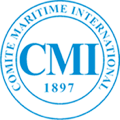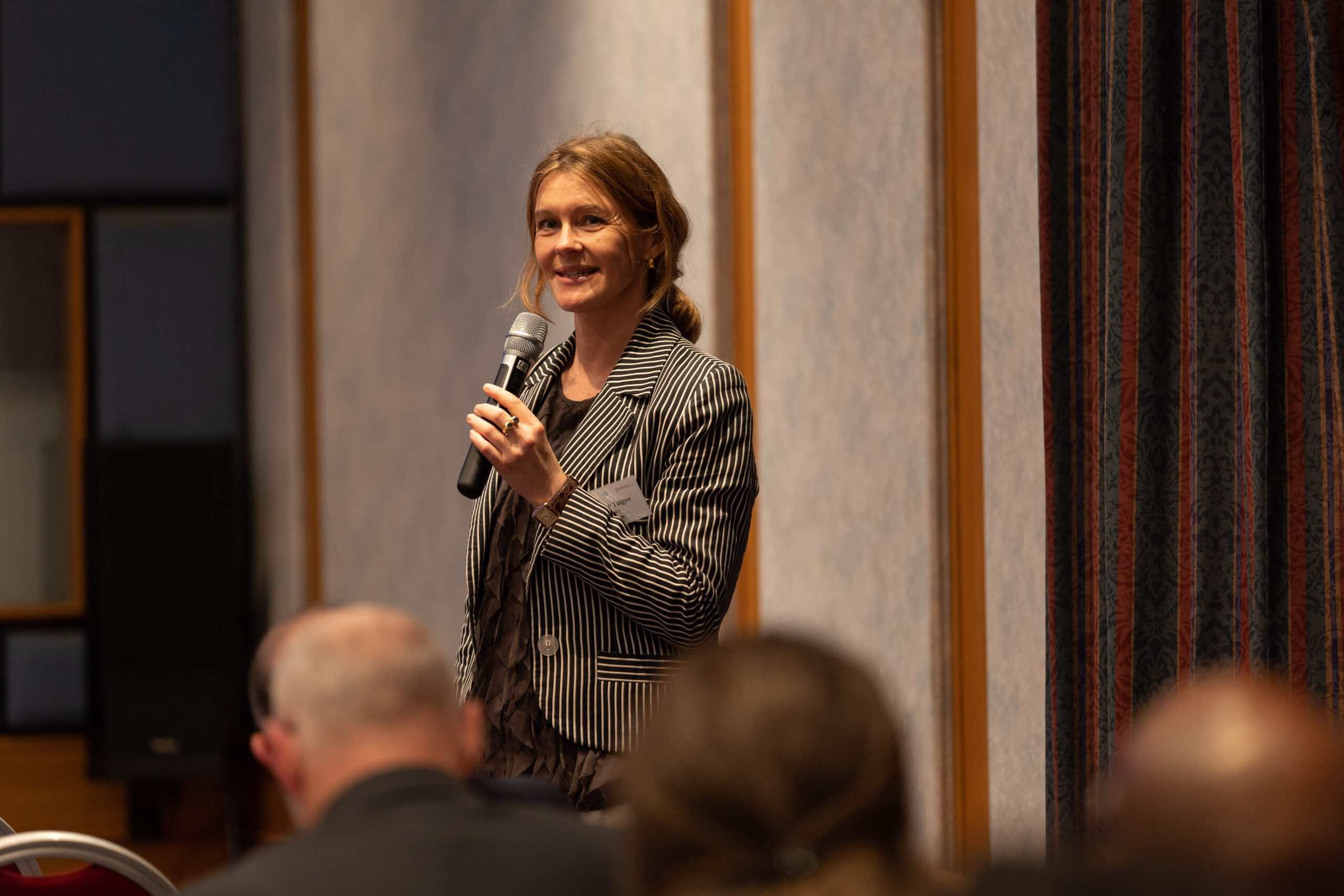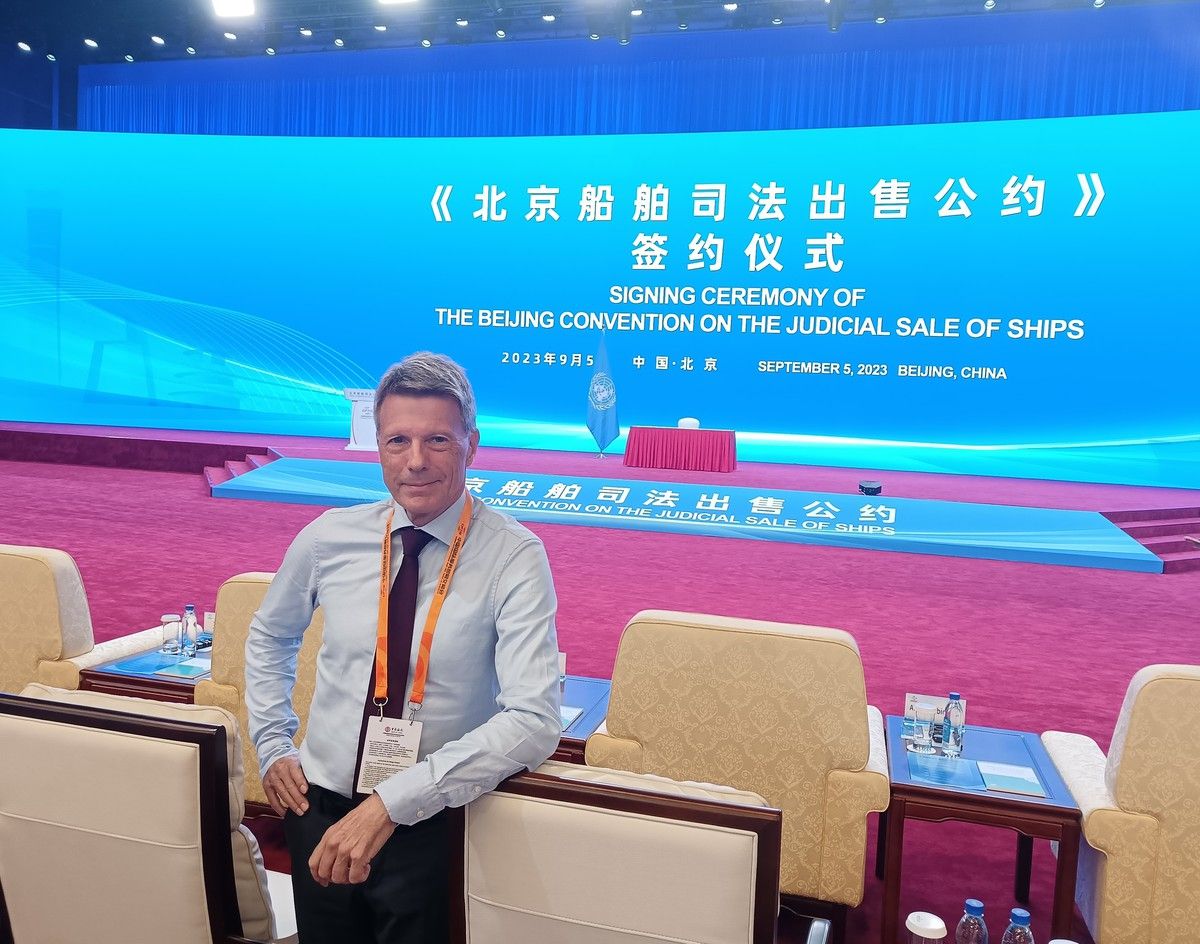Meeting our Consultative Members: BIMCO Newsletter 2/2023
In light of their dedicated, heavily involved activity with the CMI, the Editorial team has decided to put spotlight on BIMCO in this Newsletter’s edition.
Mr Søren Larsen, Deputy Secretary General and Ms Stinne Taiger Ivø who is currently Director, Contracts & Support and responsible for the documentary work in BIMCO have been asked a number of questions relating to the work carried out by BIMCO and the relationship they enjoy with the CMI.
- Stinne, at this juncture with so much happening on the international maritime scene, what do you see as the most important topics for BIMCO to focus on these years on the documentary side?
You are indeed right. At this point in time the shipping industry is faced with several challenges having to navigate an ever-changing landscape geopolitically and at the same time adopting to new requirements driven by the need to decarbonise. These requirements impact the whole industry, and it is our role to develop and make available standard contracts and clauses to create certainty and clarity for the relevant parties. Without standard contracts and clauses each company will have to spend time and resources to develop their own tailormade clauses and negotiate same. The regulatory framework is becoming more and more complex, and some owners and charterers do not necessarily have the resources to digest what a new requirement encompass and how this will impact their commercial contracts. I see BIMCO as having an important role to play here, not only to publish contracts and clauses, but also to guide, explain and educate via webinars, articles, presentations etc. Our explanatory notes have also become more detailed and now includes guidance which goes beyond only commenting on the various subclauses. We have taken this step to further assist the industry and market players to better form their own opinion on how to negotiate and apply a certain standard clause in their particular contract.
In spring 2023 at our DC meeting, we presented and obtained the Documentary Committee’s approval on a two-year work programme. This work programme, which will run until spring 2026 sets out three main pillars or focus areas: decarbonisation, alternative fuels, and offshore energy. We are still in the process of finalising projects which were commenced before this work programme was agreed and we will also commence project which fall outside these three main pillars, when it is needed to support the industry. A good example is that we will review our existing contract on recycling of ships, RECYCLECON, as the Hong Kong Convention will now enter into force. Having said that and when we look at what we have published during the past year or so, the published clauses demonstrate a clear focus on decarbonisation: CII Operations Clause for Time Charter Parties, CII Clause for Voyage Charter Parties, ETS Clause for Time Charter Parties, three ETS Clauses for Voyage Charter Parties and a ETS Clause for ship management contracts. We have just established a subcommittee to develop clauses for retrofitting of ships as well as data sharing and energy efficiency performance. We have produced supply terms for LNG (Annex to our existing BIMCO Bunker Terms), we are currently developing supply terms for Methanol, which are to be followed by supply terms for Ammonia, as well as clauses for dual-fuel engines, biofuel. The next very important regulation for the industry to tackle is the FuelEU Maritime Regulation, which will enter into force 1 January 2025. Offshore energy, green energy will play an important part to achieve the decarbonisation goals set. Offshore wind farms are one source to supply renewable energy. BIMCO has been involved in the offshore sector for many years and our WINDTIME and SUPPLYTIME charter parties are popular in the industry. We see a need for more contracts in the offshore sector and therefore we have allocated more resources to expand our documentary activities within this field. We will commence a new project to develop a contract for transport and installation of wind turbines, WINDSEACON as well as a CO2 Charter Party for the carriage and storage of CO2.
My view is that there is more work to be done in this space assisting the industry on its path towards decarbonisation and as the upscaling of low-carbon fuels takes off. We are also yet to discover the true impact of new regulatory requirements in practice and to which extent they further change the commercial architecture and trade. Needs for further clarity and certainty around contractual aspects may emerge as new regulatory requirements take effect and as the industry adapts.
- Søren, BIMCO has been a very important member of the CMI for many years and we are hugely grateful for all the support you have always given the CMI. Can you tell us in your own words why it is important for BIMCO to give this support and why it is important that it should continue? Can you give us some insight into what you consider the most important projects going forward?
Let me start out by saying what a privilege it has been to be part of the CMI family during the many years I have been working for BIMCO. I have always had a soft spot for CMI both because it involves so many wonderful, talented and passionate individuals who are prepared to work pro bono for the betterment of the entire shipping industry but also because CMI and BIMCO to a large extent work for the same purpose and that is to facilitate the maritime industry across the board through harmonization and standardization. The only slight difference is that while CMI is engaged in the unification of international maritime law generally, BIMCO is harmonizing or standardising private maritime law at the contractual level.
And no matter how we turn it around, very often there is a strong contractual link between what CMI is involved in and BIMCO’s contracts and clauses. An example I can just mention the Hague/Hague Visby Rules that are implemented in most BIMCO contracts through a clause paramount or the York Antwerp Rules 2016 that we have now made applicable by specific reference in all BIMCO’s contracts of carriage developed or revised after the 2016 Rules came into force. Hence, both organisations should work closely together to ensure that we apply the highest possible standards when it comes to the development of regulatory instruments and contracts and clauses for the maritime industry because there is a need for it – more than ever before.
The maritime shipping industry is extremely diverse involving many different stakeholders not always with the same interest and that is probably why so many of us are fascinated about it. But what is common in the entire industry is that it is operating in an increasingly complex regulatory landscape posing challenges to many stakeholders. The best examples I can provide is the recent regulations dealing with the EU ETS and IMO’s regulations on carbon intensity indicators better known as CII. The shipping industry was looking to BIMCO for help to deal with e.g. the CII regulations in CII they found to be overly complex and rather illogical and I shall be honest and say that it caused BIMCO a huge headache to implement the regulations at the contractual level in a practical and balanced fashion as they basically changed long held business practices. And what we have seen with the EU ETS and CII may only be the beginning, so, the need for CMI and BIMCO to weigh in with all the commercial and legal knowledge that both organisations can muster to save the maritime industry cost and time will only increase. That is why CMI BIMCO and must continue to support each other and perhaps even work closer together in the future.
As regards which projects I consider to be the most important, well there is no doubt in my mind that it will be projects related to the decarbonisation of the international shipping industry. I am sure that there will be many projects that we have not even thought about yet because if the shipping industry is going to reach its targets for zero emissions then it will involve many different stakeholders, including ports. Alternative fuels is just one way of reaching the industry’s targets when it comes to zero emissions so, we are now developing contractual terms for the selling and buying of e.g. Methanol as an annex to the existing Standard Bunker Terms 2018 which have gained widespread usage in the bunker industry. Next will be an annex dealing with Ammonia. So, there will be many different contracts and clauses that BIMCO will need to develop as part of the maritime industry going green.
Lastly, as the world is hopefully going to minimise the use of fossil fuels at some stage this will obviously have a knock-on effect as regards projects within the renewable and offshore sector. So, I do see BIMCO having to maintain or perhaps even increase its strong focus in that very important part of the shipping industry.
On a final and personal note, let me thank CMI for many great moments I have had with the organisation; those I will look back on with happiness as I retire from BIMCO on 1st June 2024.
- Stinne, you know that BIMCO is a very important consultative member of the CMI, and we are very much looking forward to continuing to enjoy the excellent working relationship which we have. How do you see our mutual organisations continuing to work together?
There has been a long-standing co-operation between CMI and BIMCO and I am very keen to continue this relationship. As the complexity of the regulatory framework grows and to deliver on the green agenda, the shipping industry needs experts to translate the legal requirements into practical applicable terms. Both organisations benefit from having a large and significant voluntary network of experts working in the industry. CMI is looking at harmonising international maritime law and the freshly achievement of the Judicial Sale Convention is an excellent example. BIMCO is involved in the development of standards for the broader industry’s contractual framework. I am sure there will be future opportunities where we can make use of the strength of both organisations in our joint overall efforts to assist the shipping industry.
The photos below were taken at the Malta Symposium and at the International Effects of Judicial Sales of Ships Convention’s signing ceremony in Beijing respectively where both Søren and Stinne’s presence on behalf of BIMCO was heavily felt and appreciated by the CMI.
Ms Stinne Taiger Ivø at the Malta Symposium on the Judicial Sales of Ships Convention supporting the CMI
Mr Søren Larsen at the Signing Ceremony in Beijing supporting the CMI


